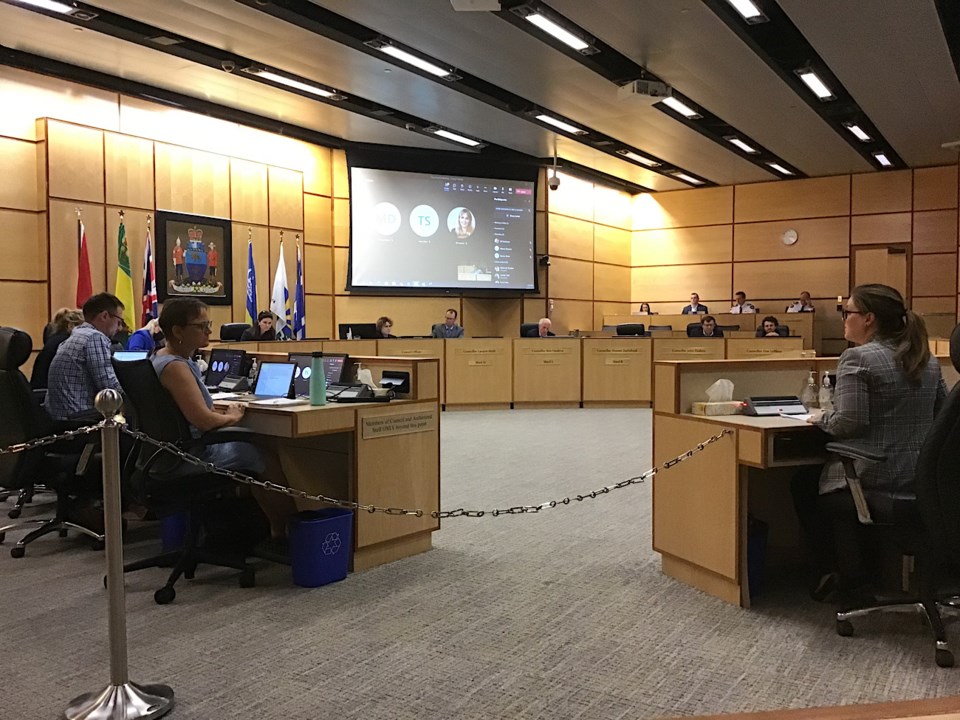REGINA — In the end, the city of Regina will not be mandating automatic fire sprinkler systems for all newly constructed residential homes in the community.
The issue took up much of Wednesday’s agenda at City Hall. At issue was a vote on whether council would instruct city administration to prepare a bylaw to mandate the automatic sprinklers.
The motion had been moved by Councillor Landon Mohl and had received support previously at executive committee by a 7-2 vote.
Yet when it came to council Wednesday it was a much different story, with councillors rejecting it 9-1.
Another motion was put forward by Ward 3 Councillor Andrew Stevens which would have mandated developers to put the option of automatic sprinklers to homebuyers. But that also ended up falling, on a 5-5 tie vote.
The vote on sprinkler mandates was closely watched, as it could have set a precedent for other communities in Saskatchewan to follow suit. Had it gone ahead, it would have been slated to come into effect in January 2023.
But there was considerable opposition expressed from a lengthy list of delegations who appeared at the city council meeting on Wednesday.
A number of speakers, including from the real estate industry, landlord, and home builders, expressed their concern the issue was being rushed through council, and also voiced concern about a lack of consultation.
One issue they raised was the cost, with sprinklers adding anywhere from $4,000 to $15,000 to construction costs. A number of speakers said they believed the costs would be on the higher end of the range.
“Believe it or not, we can actually improve ourselves out of being competitive,” said Chris Guerette, CEO of the Saskatchewan Realtors Association, who made the point the added costs could jeopardize Regina’s competitive advantage as a more affordable market for housing.
“If housing choice and price brackets are poor in diversity, people will not move to Regina and they will not stay,” she said.
One of those opposing the council resolution, Stu Niebergall of Regina and Area Homebuilders Association, took issue with some claims of the sprinkler supporters who appeared at executive committee.
He pointed to their assertion that sprinklers could be integrated into a home for as low as $4,000, but Niebergall said their own inquiries into Swift Current and the Calgary subdivision of Livingston showed that “without significant accommodations by the city of Regina, installation will be far more expensive than the sprinkler lobby stated.”
“We acknowledge the sprinkler lobby was very well prepared with arguments and certainly pulled at the heartstrings,” said Niebergall. “With that, they made some assertions that are unproven in Regina.”
Council also heard Wednesday from delegations representing the sprinkler industry, who made their pitch that sprinklers saved lives.
In the end, the level of opposition seen at the meeting came as no surprise to Mayor Sandra Masters.
“I voted no last week with intent, because I’ve said it before, I don’t believe in walk-on motions,” said Masters.
The mayor told reporters after the council meeting she believed the additional information from the other groups made a difference in swaying council.
“Based upon the response from industry, specifically the home builders and those who are producing everything from affordable housing to subdivision development, the reaction to the walk-on motion that was perhaps not fully contemplated or fully thought out, the ramifications of the implementation of that — hearing that information I think resulted in council having more information to consider rather than just what we heard from last week.”
According to numbers from the city, 10 people died in house fires between 2017 and 2021, none of them in new builds.
Mayor Masters said safety was of paramount importance and noted there was already a commitment in the Fire Master Plan to educate and work with home builders and new home buyers to talk about sprinklers.
“I think what we learned is that, especially in newer subdivisions, we don’t have a lot of fires,” said Masters. “Loss of life is always tragic regardless of how and when it happens. We depend upon those researching and advocating at a national level to come down with building codes that are intended to weigh cost-benefit analysis and provide advice on not just the building code but also the fire code.”





